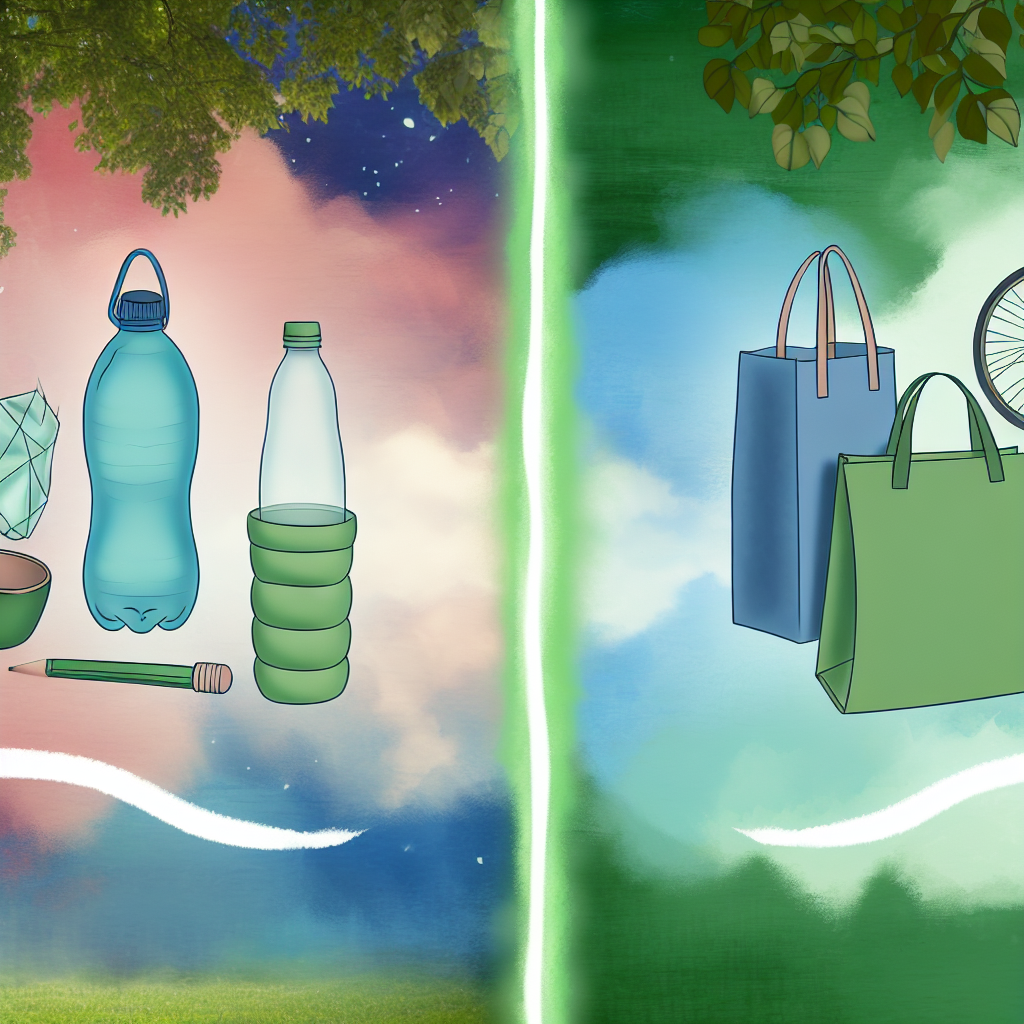10 Easy Swaps to Save Money and Help the Planet
Introduction
Welcome to Frugal Zeitgeist, where saving money and helping the Earth can be as easy as changing your socks! Today, being good to our planet isn’t just a trend. It’s important for both our wallets and the environment. Every time we spend money, we can choose items that are better for the Earth. Let’s start making some eco-friendly swaps that are great for your budget and for Mother Earth. Because, honestly, who doesn’t love saving money and feeling like a superhero at the same time?
Swap 1: Reusable Bags
Plastic bags are out of style! They take ages to break down. Instead, use reusable bags made from cloth or recycled materials. These are much better for the environment and help protect wildlife. Plus, they save you from those painful plastic handles that hurt your hands.
Tips for remembering reusable bags:
- Keep them in your car trunk.
- Hang them by your front door.
- Set a reminder on your phone!
Swap 2: Stainless Steel or Glass Water Bottles
Single-use plastic bottles are bad news. They cost a lot and pollute our oceans. By using a stainless steel or glass water bottle, you cut down on plastic waste and save money. Plus, you can choose a bottle that matches your style and stay hydrated too!
Check out these bottle options:
- Insulated stainless steel bottles to keep drinks hot or cold.
- Glass bottles with silicone sleeves for grip.
- Infuser bottles for tasty, flavored water.
Swap 3: Cloth Napkins and Towels
Throw-away paper products can be wasteful and expensive. Switch to cloth napkins and towels. They’re washable, reusable, and add a nice touch to your kitchen or dining table.
Fun options include:
- Classic white cloth napkins for a vintage look.
- Colorful towels that make cleaning fun.
- DIY cloths you can make yourself.
Swap 4: Beeswax Wraps Instead of Plastic Wrap
Plastic wrap is hard to quit and bad for the planet. Try beeswax wraps instead. They’re reusable and keep your food fresh without all that plastic waste.
Caring for your beeswax wraps:
- Wash them by hand with cold water and mild soap.
- Keep them away from heat.
- Use a beeswax repair kit to make them sticky again if needed.
Swap 5: Bulk Buying and Refill Stations
Buying in bulk isn’t just for people with a ton of storage space! It reduces packaging waste and saves you money. Many stores now offer refill stations for items like soap and grains.
How to start with bulk buying:
- Begin with basics like rice or pasta.
- Use airtight containers for storage.
- Enjoy fewer shopping trips and more space at home.
Swap 6: Energy-Efficient Light Bulbs
Old incandescent bulbs waste a lot of energy. Switch to LED or CFL bulbs to cut down on electricity use. They last longer, saving you more money.
Lighting choices to consider:
- Warm white LEDs for a cozy feel.
- Smart bulbs to control lighting schedules.
- Motion sensor bulbs for areas you don’t use often.
Swap 7: Homemade Cleaning Products
Some store-bought cleaners can be harsh and expensive. Make your own cleaning products at home! They’re cheaper, safer, and work really well.
Try these homemade solutions:
- Vinegar & Baking Soda: Great for cleaning.
- Lemon & Salt: Good for stains and odors.
- Essential Oil Sprays: Add a nice scent as you clean.
Swap 8: Sustainable Fashion Choices
Fast fashion might be cheap, but it’s not good for the planet. Go for sustainable fashion by buying quality clothes, second-hand items, or swapping clothes with friends.
Ways to be stylish and eco-friendly:
- Look for brands that care about the environment.
- Find cool stuff at thrift stores.
- Host a clothing swap with friends to get new clothes without spending.
Swap 9: Composting
Food waste adds to pollution by releasing methane gas. Composting turns waste into good soil. Whether you do it in your backyard or on your kitchen counter, composting helps the environment and helps plants grow.
Getting started with composting:
- Choose a compost method that works for your home.
- Learn what can be composted and what can’t.
- Use compost in your garden or with houseplants.
Swap 10: Digital Over Paper
Using less paper helps save trees and keeps your life organized. Going digital means less clutter and more space.
Steps to go digital:
- Switch to electronic bills and bank statements.
- Use apps and digital tools for notes and lists.
- Get a digital planner to keep track of your schedule.
Conclusion
Great job, eco-warrior! You’ve gone through a bunch of swaps that could make a difference. These changes help the environment and save money. You don’t have to do them all at once—starting with a few will still help a lot. Every little bit counts toward a healthier planet. Happy swapping! 🌍💚
